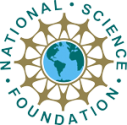- OSDI '12 Home
- Organizers
- Registration Information
- Registration Discounts
- At a Glance
- Calendar
- Technical Sessions
- Workshops
- Poster Sessions and Receptions
- Birds-of-a-Feather Sessions
- Sponsors
- Activities
- Hotel and Travel Information
- Services
- Students
- Questions
- Help Promote
- For Participants
- Call for Papers
- Past Proceedings
sponsors
usenix conference policies
SymDrive: Testing Drivers without Devices
Matthew J. Renzelmann, Asim Kadav, and Michael M. Swift, University of Wisconsin—Madison
Device-driver development and testing is a complex and error-prone undertaking. For example, testing errorhandling code requires simulating faulty inputs from the device. A single driver may support dozens of devices, and a developer may not have access to any of them. Consequently, many Linux driver patches include the comment “compile tested only.”
SymDrive is a system for testing Linux and FreeBSD drivers without their devices present. The system uses symbolic execution to remove the need for hardware, and extends past tools with three new features. First, SymDrive uses static-analysis and source-to-source transformation to greatly reduce the effort of testing a new driver. Second, SymDrive checkers are ordinary C code and execute in the kernel, where they have full access to kernel and driver state. Finally, SymDrive provides an executiontracing tool to identify how a patch changes I/O to the device and to compare device-driver implementations. In applying SymDrive to 21 Linux drivers and 5 FreeBSD drivers, we found 39 bugs.
Open Access Media
USENIX is committed to Open Access to the research presented at our events. Papers and proceedings are freely available to everyone once the event begins. Any video, audio, and/or slides that are posted after the event are also free and open to everyone. Support USENIX and our commitment to Open Access.
author = {Matthew J. Renzelmann and Asim Kadav and Michael M. Swift},
title = {{SymDrive}: Testing Drivers without Devices},
booktitle = {10th USENIX Symposium on Operating Systems Design and Implementation (OSDI 12)},
year = {2012},
isbn = {978-1-931971-96-6},
address = {Hollywood, CA},
pages = {279--292},
url = {https://www.usenix.org/conference/osdi12/technical-sessions/presentation/renzelmann},
publisher = {USENIX Association},
month = oct
}




























connect with us